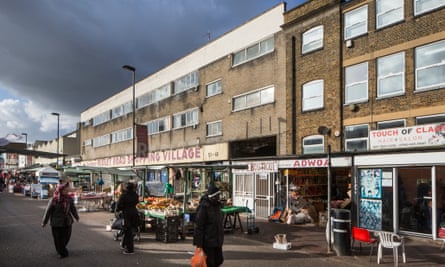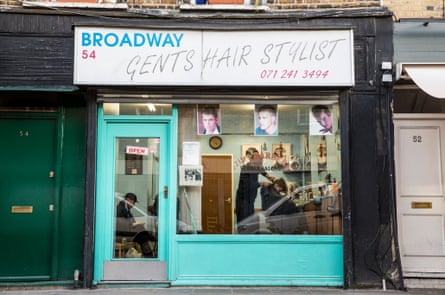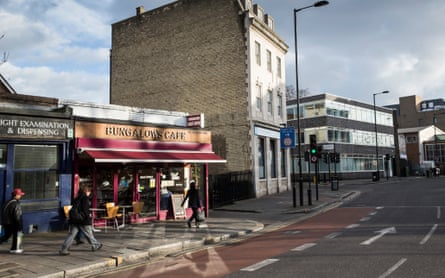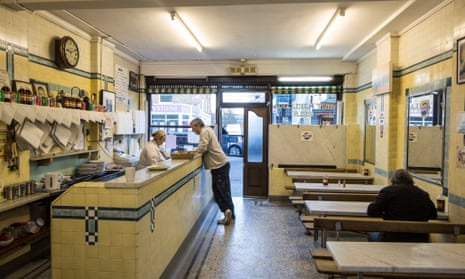No shortage of words have been written about the changing face of east London. From blogs chronicling the dizzying number of independent coffee shops and cocktail bars to the modest internet outrage provoked by a Brick Lane cereal shop owner’s remarkable tone-deafness, gentrification is a topic that’s all abuzz.
Indeed, much of east London’s hipster culture plays out on the internet, from the Instagram accounts and lifestyle blogs of young creative professionals to the writings of cultural critics opining online. Because of that, we tend to hear far more from the creative class gentrifiers than those who they are gentrifying. Amid endless articles lamenting or celebrating another gelateria or gastropub, the unfiltered voices of working class east Londoners and long-time Hackney locals are notably absent.
Though they may be lacking in the blogosphere, the viewpoints at this end of the spectrum are strong and varied. Rising housing costs, a decline of blue-collar jobs, and the replacement of affordable shops and cafes with trendier versions are common concerns.
The following interviews took place in January with service users of North London Action for the Homeless, a Hackney drop-in service that serves a hot meal twice a week to people who need it, regardless of housing or employment circumstances. Real names are used unless otherwise noted.

Joseph Cooke
This is an idea that’s been going on for aeons of time; this middle class thing like, ‘We’re different to you and you’re a lower class person so you stay on that side of void and eat at that cafe down there, and we’ll sit on this side and eat at this restaurant.” It’s like a mould. The only thing I see that’s important to [hipsters] is that they have an image and their image is different to yours. And they have this sense of, ‘Even though we’re living in one of the toughest boroughs in Britain, we’re gonna do our stuff. We’re gonna have our market on Saturday and you stay away and you do your stuff … and we don’t want to know you.’ That level of class distinction is too old-fashioned and it needs to be changed.
It’s not that they have more money or are more educated that’s the problem – it’s their attitude. They’re English, so they have every right to move to any part of the country they want. It’s just the attitude they carry with them is so old-fashioned. They need an injection of humour. They take themselves too seriously.
Edwin Osamor
The multicultural aspect of east London has always been there. A lot of different cultures have prominent communities within the East End – you see shops owned by Greek people, Turkish people, Caribbean people, Africans. I think now in the the East End they are pinpointing a lot of the money into new flats and new housing estates and refurbishment of areas. I go to the Haggerston pub on a Sunday, jazz night. Really good. I think that Hackney will do good for all these young people coming here. If the professionals come here and if they’re working here, they’ll bring a different concept to Hackney, they will improve the social structure they will allow people to sit down and say, ‘Well yeah I would like to be a professional and I’m going to spend my time trying to become that.’

Grant Kingsnorth
When I first arrived 20 years ago I lived on Broadway Market and it had one fruit and veg barrow and one very nice pub. The rest of it was run-down; it was a proper working class street in Hackney. Stoke Newington Church Street has today become the model for what Jules Pipe – who’s the mayor – wants for Hackney. But Hackney isn’t like that. Most working class people on a budget wouldn’t be able to shop for food on Church Street because it’s artisan bakers and incredibly expensive fruit and veg shops.
It’s not about money. I don’t begrudge anybody as long as they’ve gone out and earned it. What I don’t like is the pretense and the assumption that someway or another Hackney needs to be grateful for all these up-and-coming industries. What’s wrong with a proper working class area having proper working class jobs?
The thing that Hackney people find frustrating is that they read about things in the newspaper and see stuff on the telly and they think ‘That’s not where we live.’ Though it may be geographically, it’s not their world, it’s not their environment
I’ve been drinking in the Dove pub for years; it was on Broadway Market when I first lived there. You could say I kept it alive through its lean years. I still drink there very occasionally – I just avoid the strawberry Belgian beers.
Barry James Leaning
When I was young, growing up on Lower Clapton Road, I could’ve never imagined Hackney would look how it does today. The worst part is they’re pushing us out, the middle class people. It seems like they’re trying to get rid of us, especially poorer people like me. All these places that are opening up bars and coffee shops – if I had the money I would go in them. On the downside, you look at all the estate agents and the house prices … I look at that and think to myself ‘Jesus how can someone afford that in Hackney.’

Jenny Smith*
I have been to Broadway Market several times and I think it can feel a little exclusive. Not because of the prices exactly, but because of the majority of people who go there it all seems to be hipsters and whether you like them or not, it can feel strange to be surrounded by the same person wherever you turn.
I live in a street with a cool cafe and wine shop and when there was a celebration a couple of years ago for the Queen they threw a street party. It was really obvious everybody there knew each other and no regular people where invited. None of the kids in the council flats or their families on my block went. Nobody but the hipsters who run the shops and their friends – it was a bit sad. How could you go along to what looked like a private party in the middle of your street? I was annoyed actually at the time, I thought it was very arrogant of people who had moved into a neighbourhood to do that. If another culture had done that they would be accused of not integrating, and that is exactly what it was.
However, I have only been in Hackney for four years now but all my friends and neighbours say how safe it is now compared to before. I can walk across London Fields late at night and feel safe with lots of cyclists and mild-mannered, drunk hipsters milling around. That’s another thing – they drink so much coffee but still they just sit there staring at their laptops. The cafe in my street is so quiet it is like a really cool, boring library.
*This name has been changed
- Rosie Spinks started the Three Course Story project in 2013, interviewing attendees at North London Action for the Homeless (NLAH), a Hackney-based charity that serves a meal twice a week to anyone who needs it – most are homeless, socially isolated, mentally ill, immigrants or those struggling with addiction.

Comments (…)
Sign in or create your Guardian account to join the discussion